
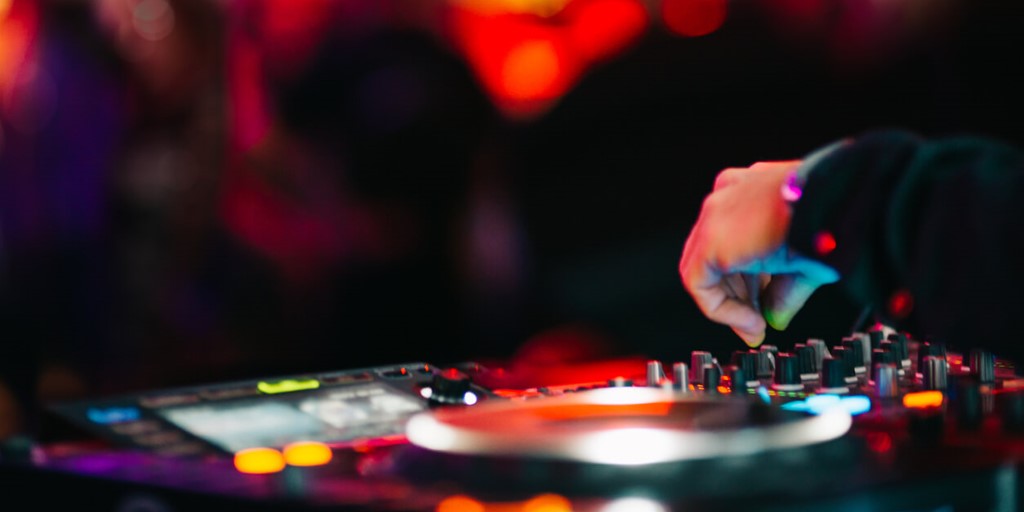
DJ marketing is a broad spectrum. It can involve various activities and several techniques. But whatever route you choose, the end goal of DJ marketing is ultimately to boost your gig bookings, increase awareness of your DJ brand, and—of course—make money.
Regardless of how and where you perform, knowing how to market yourself as a DJ is crucial to your success, especially if you’re just starting out. Your DJ marketing know-how could be the difference between someone finding and booking you or booking your competition instead.
Here’s how to market yourself as a DJ in 7 manageable steps.
1. Define your DJ style

DJing takes several forms, and while you might like to dabble in different styles, being able to define what specific type of DJ you are will make your marketing efforts easier and more effective.
Ask yourself how you want to be known, what kind of events you want to perform at, and what genre of music you want to be associated with. For example, are you solely a wedding DJ, do you have a regular slot at a nightclub, or are you more of a private function DJ?
Knowing your style means you’ll also know your target audience, which is integral to any form of marketing. The more you know about your target audience, the easier they are to reach.
Related: 5 main types of DJs—what kind are you?
2. Get a unique DJ name

Having a unique DJ name is important if you want to secure gigs. There’s nothing wrong with just using your standard name, but you might want to adopt something snappier to help you stand out online and on things like event or festival line-ups.
Once you have a ‘stage name’, you should also think about creating a logo as part of your wider branding and marketing efforts. This could even be as simple as choosing a quirky typeface for your DJ name, but it’s important to stand out.
Have a look at a few festival or event line-ups, and see how the DJs are presented. You want new audiences to remember your name just as much as your performances. However, remember that your DJ name and branding need to be appropriate for the type of DJing you do.
3. Be active on social media
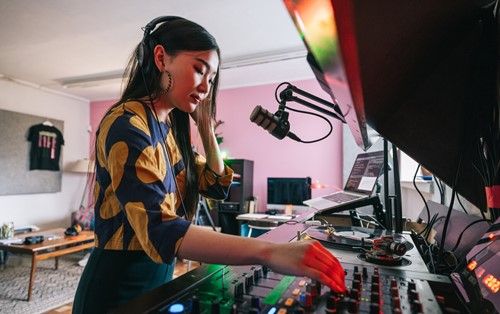
You can’t ignore social media as part of your DJ marketing strategy. Your social media profiles are a platform for you to showcase not just your work and testimonials but also interact with your audience and show your personality.
Platforms like Instagram and TikTok, are essential for DJs as they’re perhaps the most video-friendly and, therefore, the best for showing off your DJ skills.
Plus, if someone catches one of your performances on the off-chance but isn’t necessarily aware of who you are yet, the first thing they’re likely to do is search for you on social media.
But again, consider what type of DJ you are (or want to be) and where your audience is, as this should also influence how you use social media. For example, TikTok is great, but it might not be the best avenue for you if you’re only interested in corporate bookings.
Social media can also be great for live-streaming sets, if that’s your thing.
Related: 10 social media content ideas for DJs and music producers
4. Perform at your local venues
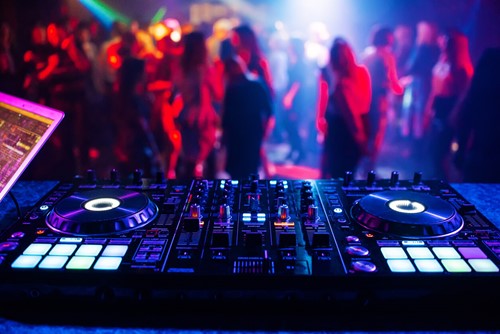
Don’t overlook your local venues, no matter how big or small. Your local pubs and clubs are important, especially when you’re first starting out as a DJ.
Getting a regular slot at a local venue will have multiple benefits for your DJ career in both the long and short term. Besides the basic security of a regular booking and a stream of income, it will:
- boost your popularity and drive awareness of your DJing
- help you build and maintain a fan base
- allow you to practice to a familiar audience
Plus, you never know who might be watching or where a good first impression might lead.
Related: Getting involved in your local scene
5. Build a website
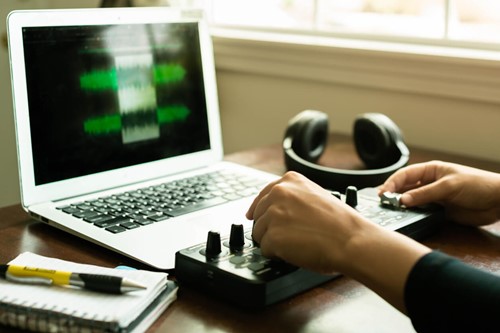
Having a website should be another top priority when it comes to marketing yourself as a DJ.
But fear not—you don’t necessarily need to be an expert in web design or IT to create a website nowadays. Plenty of easy-to-use platforms, such as Wix, can help guide you through the process. Particularly to begin with, your website doesn’t necessarily need to be anything extravagant. As long as it’s easy to navigate, showcases your branding, and has clear contact and booking details, that’s all you really need to get started.
However, if you do know a thing or two about digital marketing, SEO and web optimisation (or at least know someone who does), now is when to put that knowledge to good use.
For example, getting your website to rank on search engines for terms like “mobile DJ in [location]” or “DJ for hire in [location]” will help you drive more web traffic and (hopefully) bookings.
Related: How to create a DJ website that will get you the gigs
6. Invest in some professional photography

Besides making you look the part, professional photography can help make your DJ business look more appealing and trustworthy to potential clients. It also demonstrates that you take your DJing seriously, as professional photography can be expensive depending on what shots you get done.
Costs aside, though, it’s well worth it. Think about it—if you were looking to book a DJ for a big event or party, would you trust or feel enthused by a website full of poor, grainy imagery? Probably not.
Put yourself in your audience’s shoes and think about what they might expect from a DJ website. It’s good to include a mix of standalone headshots with snaps of you in action behind the decks, too.
7. Network
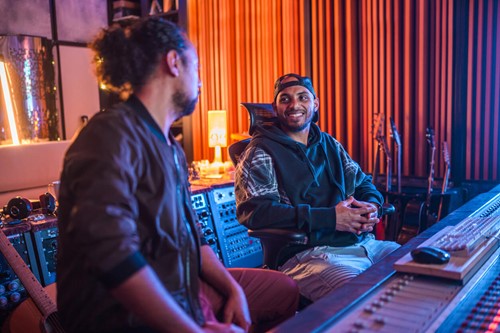
It’s true that other DJs are your competition, particularly those in your local area, but that doesn’t mean you should close yourself off completely. In fact, networking with your fellow DJs and other music industry pros is a great way of learning and building up your contact book.
The DJ industry (and the wider music industry in general) is incredibly competitive, but it pays to be friendly and approachable. After all, you never know where a conversation or connection might lead.
Related: Networking tips and tricks for DJs
Specialist DJ insurance through Insure4Music
Knowing how to market yourself as a DJ is key to getting regular gigs and bookings. With effective DJ marketing, you can forge a successful career in music and make good money from your craft.
If you DJ live to an audience, you may want to consider protecting yourself and your equipment through specialist DJ insurance. With Insure4Music, you can cover your equipment against theft, loss and damage both in and out of your home. You can also get Public Liability cover too, which is often a requirement for performing live at venues.
Learn more about specialist DJ insurance through Insure4Music, and click below to get a quote today.

